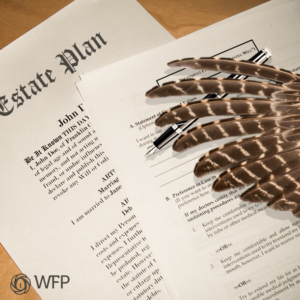
THE TRANSFER OF YOUR ASSETS: AS EASY AS PUMPKIN PIE!
Using a Revocable Trust and other advanced planning techniques will assure your family an easy transition of assets upon your death
As you are preparing for this upcoming thanksgiving dinner, you may come to the realization that while pumpkin pie is a tad bit more complicated to bake than its kin, Apple Pie; it sure is easy to eat! The same rings true for an estate plan that uses advanced planning techniques to provide for an easy transition of assets upon your death. It may be easier to simply make a Last Will & Testament that states your wishes; however, that is going to result in a gruesome probate experience for the loved ones you leave behind.
So now you are wondering, what is so special about a Revocable Trust based estate plan? Let us answer this question with another question: If you became incapacitated or died, would you have the following benefits?
- asset protection
- control over your assets
- protection for your loved ones
- preclusion of unnecessary taxes
- creditor protection
- limited/no transfer taxes for following generations
- probate avoidance
Absent a full trust-based estate plan, you answer will likely be “no.” A Revocable Trust based estate plan provides all of these benefits, and more. We have already discussed the documents that are imperative to prepare for incapacity (see “You Are What You Eat: Pass The Vegetables”). Now let us take a look at those that provide protection over your assets and their proper distribution.
Pour Over Last Will & Testament and Revocable Trust – The will coupled with a revocable trust effectively bypasses probate, which is the validation of the will — a process that is often incredibly time consuming and often expensive. The pour-over will takes all of the property that passes through the will, and funnels it into the trust. That property is then distributed to the trust beneficiaries pursuant to the terms of the trust. A pour-over will functions to ensure that all of the decedent’s property is transferred to trust. Think of the pour-over will as a safety net that catches all of the assets that were not properly transferred into trust. All the contents of the net are then poured into the trust, ensuring that all of the property is ultimately distributed through the living trust. Furthermore, all of the decedent’s property is distributed by the terms of one document alone (the trust), allowing for simplicity and clarity.
Assignment of Property to Trust – the assignment of property places all of your property into the trust. This avoids costs, loss of privacy, & headache associated with probate. Therefore, when all of your assets are distributed through the trust, there is nothing within the will to validate. As an alternative, you can merely assign property to the trust that you specifically want to preclude from probate, for the purposes of privacy.
For more information on successful Florida estate planning and asset protection techniques, please contact the South Florida law firm of Wild Felice & Partners, P.A. at 954-944-2855 to schedule your free consultation.

